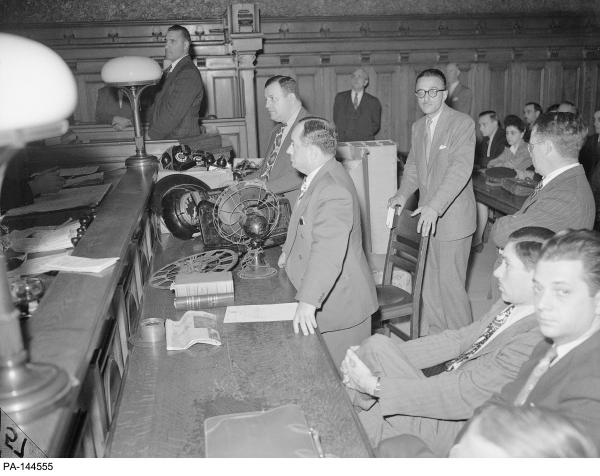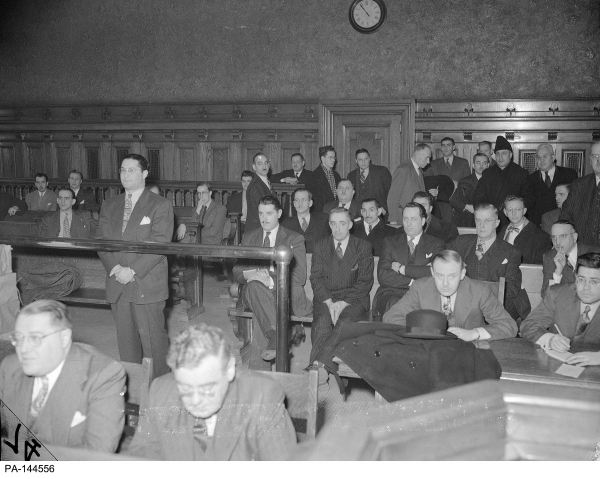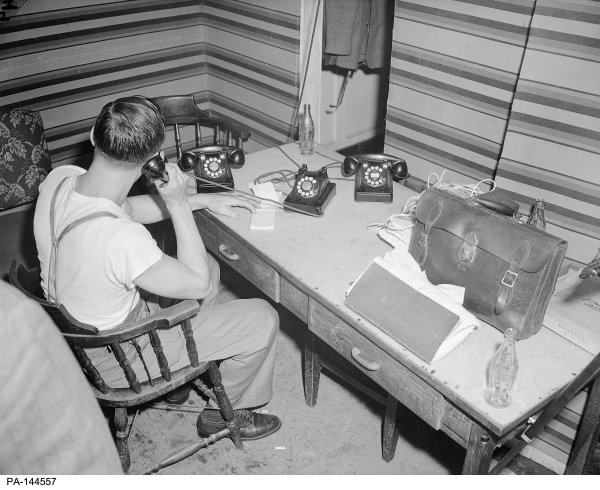Harry Ship - Chez Parée
1952 - 2015
1258 Stanley
Known as the “King of Montreal Gamblers,” Harry Ship (1913–1998) operated one of Montreal’s most notorious and prestigious gambling rackets in the 1940s. This era saw the prominent involvement of East European immigrant Jews in organized crime. Figures such as Harry Davis, Barney Shulkin, Harry Feldman and Max Shapiro were part of the Montreal underworld and active especially in illegal gambling businesses. Ship’s business ran from a series of apartments, called “white houses,” with branches downtown on Ste. Catherine Street, in Lachine, in Greenfield Park, and even on a farm in Côte St. Luc. These establishments were informal illegal casinos, which mimicked their more legal cousins in other parts of the world by using techniques such as serving food to the gaming tables so visitors would not stop gambling. Some “white houses” also hosted cubicles, in which Ship’s employees were given notepads and telephones for taking bets on everything from sporting events to election results.
Ship’s preternatural relationship with numbers was known well before he took up gambling. He attended Queen’s University where he excelled in mathematics, but did not graduate. His gambling empire made him very wealthy, and he was known to live lavishly. He owned a mansion in Outremont and the legendary nightclub Chez Parée, which featured notable performers such as Dean Martin and Frank Sinatra. Ship was a shameless self-promoter. Supposedly equipped with a public relations team, he even sponsored a junior baseball team, called the Shipmates.
However, Ship’s reign did not last long. A prominent lawyer, Pax Plante, publicly declared war on Montreal’s gambling rackets. Plante’s crusades were often accompanied by local media, and, in 1946, he made Ship his main target. In January 1948, Ship was arrested and found guilty on three counts for operating illegal gambling houses. At his trial, he claimed to be bankrupt – there is speculation that this was, in fact, true due to his personal addiction to gambling. Ship’s empire was eventually taken over by the emerging Sicilian Mafia faction in Montreal, who made threats to his life. Little is known about Ship after he was forced out of the gambling and criminal underworld at the end of the 1950s.
Ship’s legacy in the Jewish community was immortalized in Mordecai Richler’s novel, The Apprenticeship of Duddy Kravitz. Richler’s character, “The Boy Wonder,” was based on Ship, who went by the same nickname.
Compiled by Valérie Beauchemin and David Gilbert.
Links
Liens
Sources
Morton, Susan. At odds: Gambling and Canadians 1919-1969. Toronto: University of Toronto Press, 2003.
Richler, Mordecai. The Apprenticeship of Duddy Kravitz. Toronto: McClelland & Stewart, 2001.
Schneider, Steve. Iced: The Story of Organized Crime in Canada. Mississauga: Wiley, 2009.
Weintraub, Wiliam. City Unique: Montreal Days and Nights in the 1940s and 1950s. Toronto: McClelland & Stewart, 1996.
*The images are courtesy of the Public Archives Canada.


This project is funded in part by the Government of Canada.
Ce projet est financé en partie par le gouvernement du Canada.
Ce projet est financé en partie par le gouvernement du Canada.
This project is funded in part by the Government of Canada.
© 2011-2015 Museum of Jewish Montreal, All Rights Reserved.
Site by Air Code Design inc. ![]()
© 2011-2015 Musée du Montréal Juïf, Tous droits réservés. Site par Air Code Design inc. ![]()


